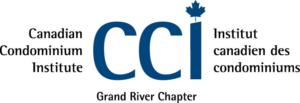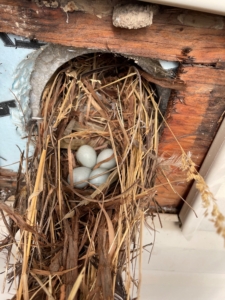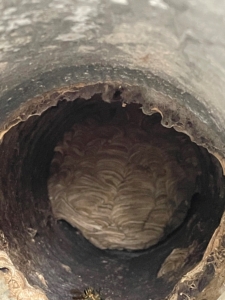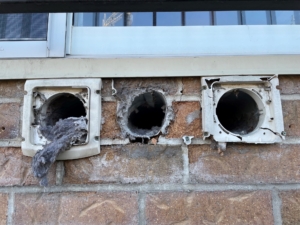Hit the Road

It’s mid-summer with the grass burning as we experience another drought, so what’s the rush in reminding the Board it needs to be making paving decisions, now? The reason of course is the Board missed the fall deadline for the asphalt plant’s closing last November and had distractions this spring not allowing early action this year.
The pot holes, sunken manhole covers, and expanding pavement cracks will not heal themselves. Before the property manager calls the paving contractor(s) it is best to remember the methods of repairs.
- Throw ‘n Roll: This is a temporary pot hole repair where liquid asphalt fills a hole and is then rolled over with heavy equipment to compact it.
- Semi-permanent repair: This is similar to the Throw ‘n Roll except it is more deliberate with the hole properly cleaned and the hole trimmed to sound pavement. The asphalt is then compacted using a vibratory roller or plate.
- Spray-injection method: This repair uses special equipment to spray a tack coat of asphalt into a cleaned hole and then blowing asphalt and aggregate into the hole. This method does not require compaction.
- Full-depth roadway replacement: This method rebuilds the pavement by pulverizing the old asphalt and mixing it with cement and water to form a base for a final asphalt surface. This method of course is the most expensive but the best.
- Infrared repair: This method uses equipment emitting infrared heating to melt the damaged surface and remove defects with new asphalt on the surface. Patches become seamless with less chance of future potholes. This method is often more cost effective than large patch jobs.
So let us start with the basics. Asphalt pavement is also called bituminous concrete. It is called ‘concrete’ because like cement-based concrete, bituminous concrete has a mineral aggregate of stone and sand. This aggregate is held together with a binder of petroleum derivative asphalt. Different soil conditions (i.e. sandy subsurface vs. clay) will warrant a different mix of asphalt paving but this will be addressed by whoever creates your bid documents and specifications. For planning purposes, your Board should assume paving will last about 20 years.
For purposes of discussions we will assume existing asphalt paved roads, parking areas, and/or driveways. Typically, roadways have a sub-base of 100 to 200 mm (4 to 8 inches) of a well-drained, compacted soil and gravel mix. The first layer of paving is called the binder course and it is 38 to 50 mm (1 ½ to 2 inches) thick. This is covered by a topping coat of 38 mm (1 ½ inches).
If it were not for the sun and water, asphalt paving would last a long time, but paving begins to deteriorate as soon as water begins to penetrate into the binder course and the UV rays removes asphalt from the topping coat. This can happen in less than five years. This is why adding a sealing coat in the first 2 to 5 years is sometimes recommended. It is also an area of confusion.

Sealing coat materials do not add back the asphalt lost due to UV deterioration. It only protects the pavement for a period of time from further deterioration such as shrinkage cracks and reveling (loss of surface aggregate). It does not bridge large cracks or fill in roadway depressions.
When water begins to infiltrate the pavement here in Canada the freeze / thaw cycle takes its toll. The small cracks become larger in the binder course and eventually the sub-base begins to fail. At this point surface cracks, settlement, alligatoring, and other surface visible signs make an appearance. Your Maintenance Plan should immediately address these problems by having crack filling as a yearly project. The cracks should be filled with standard joint filler to within 3 to 6 mm (1/8 to ¼ inch) of the top of the crack. Similarly, surface depressions and sink areas should be annually addressed as well.
After fifteen years, major paving projects might present themselves. Sometimes a major re-surfacing project can be delayed with judicious removal of large areas of deterioration and repairing the sub-base followed by a 38 mm (1 ½ inch) binder with a 38 mm (1 ½ inch) top coat. If the roadway or parking area deterioration is judged to be wide spread, the options include a reclamation project where the top 150 to 300 mm (6 to 12 inches) of pavement and sub-base is ground into a recycled material that can be reused for a compacted and graded foundation for a new paving surface. This minimizes trucking and labor costs and extra materials costs. So if have not done anything with your paving, it may be time to hit the road.

Henry J. Jansen, P.Eng., ACCI
President, Criterium-Jansen Engineers
http://www.criterium-jansen.com

Presenters, the Canadian Condominium Institute and its representatives will not be held liable in any respect whatsoever for any statement or advice presented herein. These presentations should not be relied upon as a professional opinion or as an authoritative or comprehensive answer in any case. Professional advice should be obtained after discussing all particulars applicable in the specific circumstances to obtain an opinion or report capable of absolving condominium directors from liability [under s. 37 (3) (b) of the Condominium Act, 1998]. Presenters’ views expressed are not necessarily those of the Canadian Condominium Institute.








































